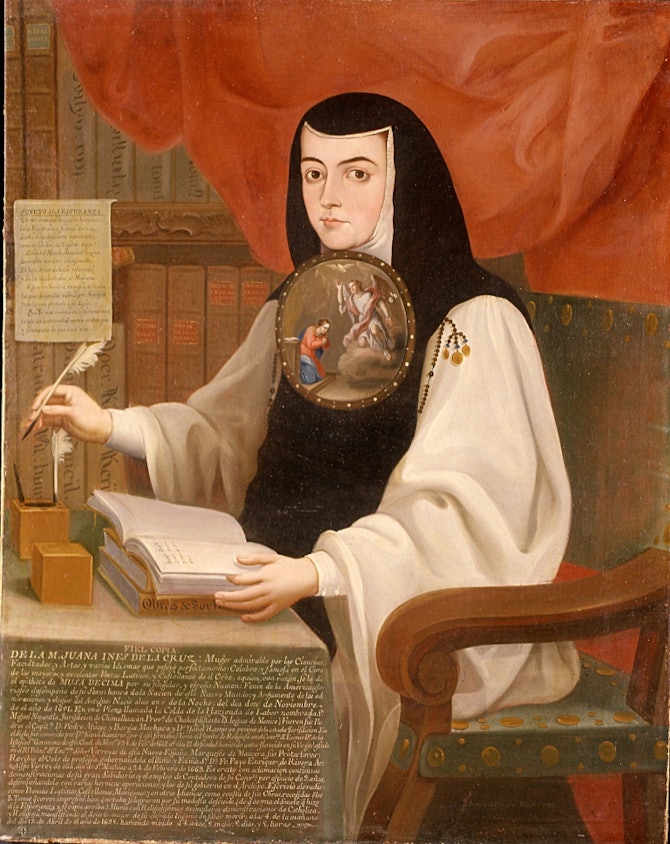 It's spectacularly tricky to attach the label of "feminist" to women who were writing, working, and living far before the term became widely used. And I'm talking centuries before. We're all pretty familiar these days with the shortest working definition of a modern feminist, thanks to writer Chimamanda Ngozi Adichie (and Beyonce) — "a person who believes in the social, economic and political equality of the sexes" — but putting that label onto people from a pre-feminist period (i.e. before the "first wave" of the late 19th century) is pretty challenging. Why? One, they're not self-defining as feminists because that didn't exist yet; two, they often champion certain bits of feminist thought while repudiating others; and three, they come from radically different societies than our own. Instead, most historians of feminism use the term "proto-feminists," meaning that these women anticipated the movement (some by nearly half a millennium), but can't be safely seen as part of it.
It's spectacularly tricky to attach the label of "feminist" to women who were writing, working, and living far before the term became widely used. And I'm talking centuries before. We're all pretty familiar these days with the shortest working definition of a modern feminist, thanks to writer Chimamanda Ngozi Adichie (and Beyonce) — "a person who believes in the social, economic and political equality of the sexes" — but putting that label onto people from a pre-feminist period (i.e. before the "first wave" of the late 19th century) is pretty challenging. Why? One, they're not self-defining as feminists because that didn't exist yet; two, they often champion certain bits of feminist thought while repudiating others; and three, they come from radically different societies than our own. Instead, most historians of feminism use the term "proto-feminists," meaning that these women anticipated the movement (some by nearly half a millennium), but can't be safely seen as part of it.Tuesday, August 25, 2015
9 Pioneering Feminists In History Who Were Way Before Their Time
 It's spectacularly tricky to attach the label of "feminist" to women who were writing, working, and living far before the term became widely used. And I'm talking centuries before. We're all pretty familiar these days with the shortest working definition of a modern feminist, thanks to writer Chimamanda Ngozi Adichie (and Beyonce) — "a person who believes in the social, economic and political equality of the sexes" — but putting that label onto people from a pre-feminist period (i.e. before the "first wave" of the late 19th century) is pretty challenging. Why? One, they're not self-defining as feminists because that didn't exist yet; two, they often champion certain bits of feminist thought while repudiating others; and three, they come from radically different societies than our own. Instead, most historians of feminism use the term "proto-feminists," meaning that these women anticipated the movement (some by nearly half a millennium), but can't be safely seen as part of it.
It's spectacularly tricky to attach the label of "feminist" to women who were writing, working, and living far before the term became widely used. And I'm talking centuries before. We're all pretty familiar these days with the shortest working definition of a modern feminist, thanks to writer Chimamanda Ngozi Adichie (and Beyonce) — "a person who believes in the social, economic and political equality of the sexes" — but putting that label onto people from a pre-feminist period (i.e. before the "first wave" of the late 19th century) is pretty challenging. Why? One, they're not self-defining as feminists because that didn't exist yet; two, they often champion certain bits of feminist thought while repudiating others; and three, they come from radically different societies than our own. Instead, most historians of feminism use the term "proto-feminists," meaning that these women anticipated the movement (some by nearly half a millennium), but can't be safely seen as part of it.
Subscribe to:
Post Comments (Atom)

No comments:
Post a Comment